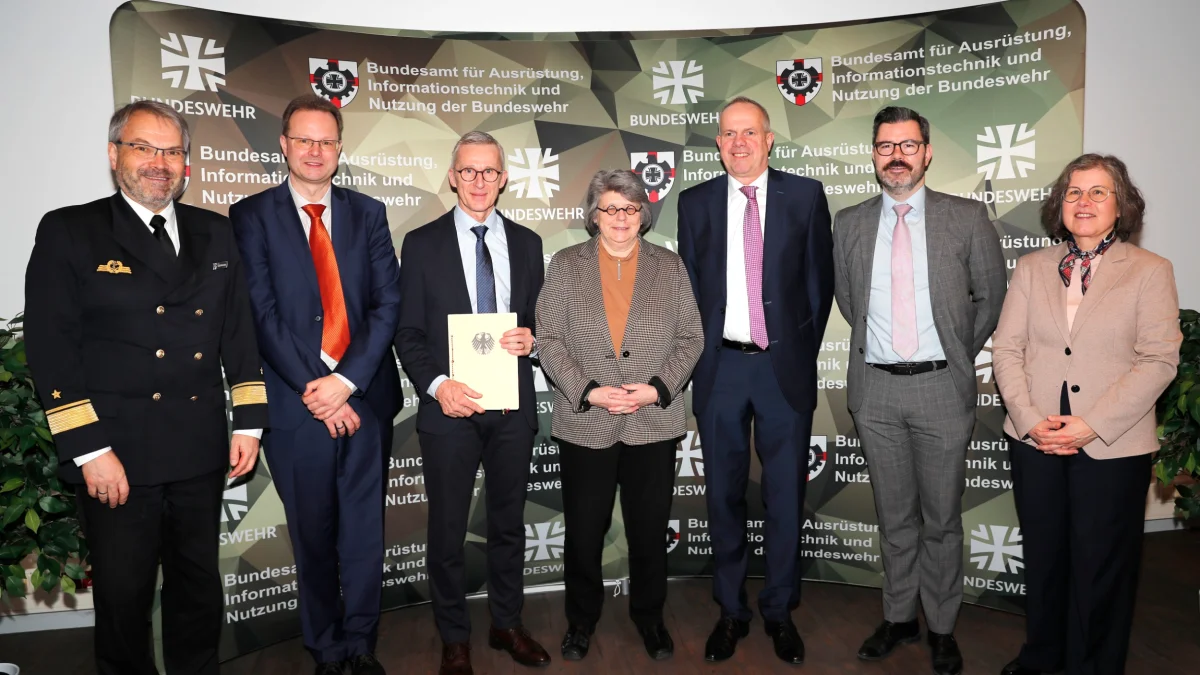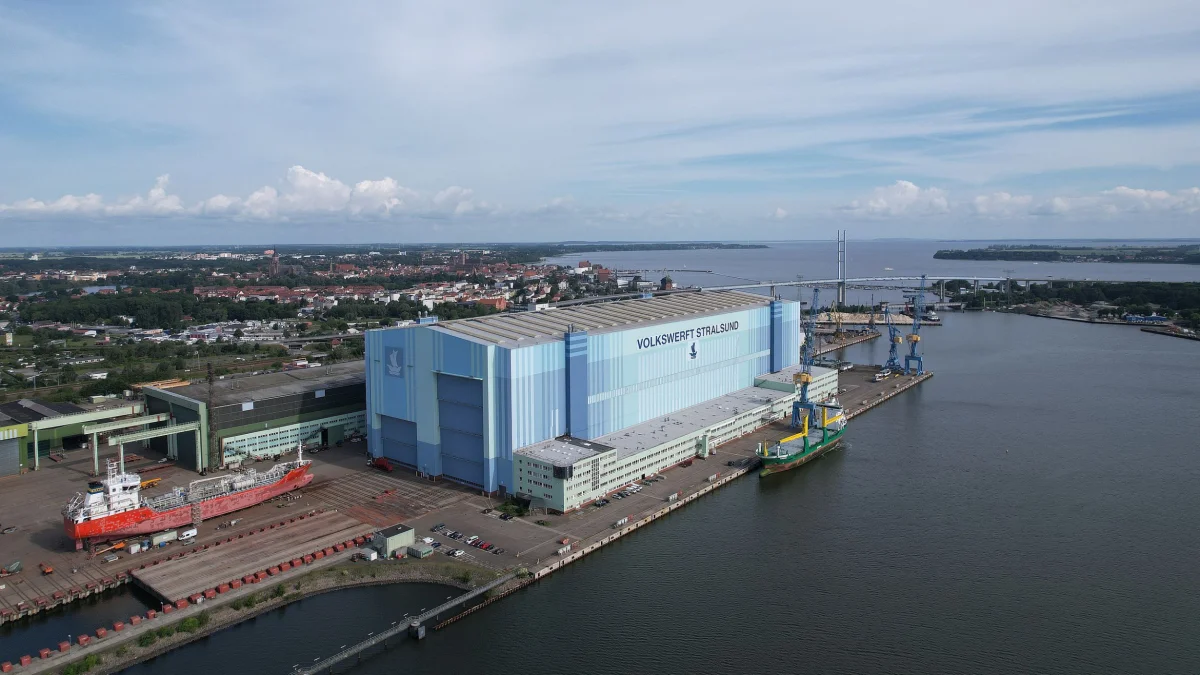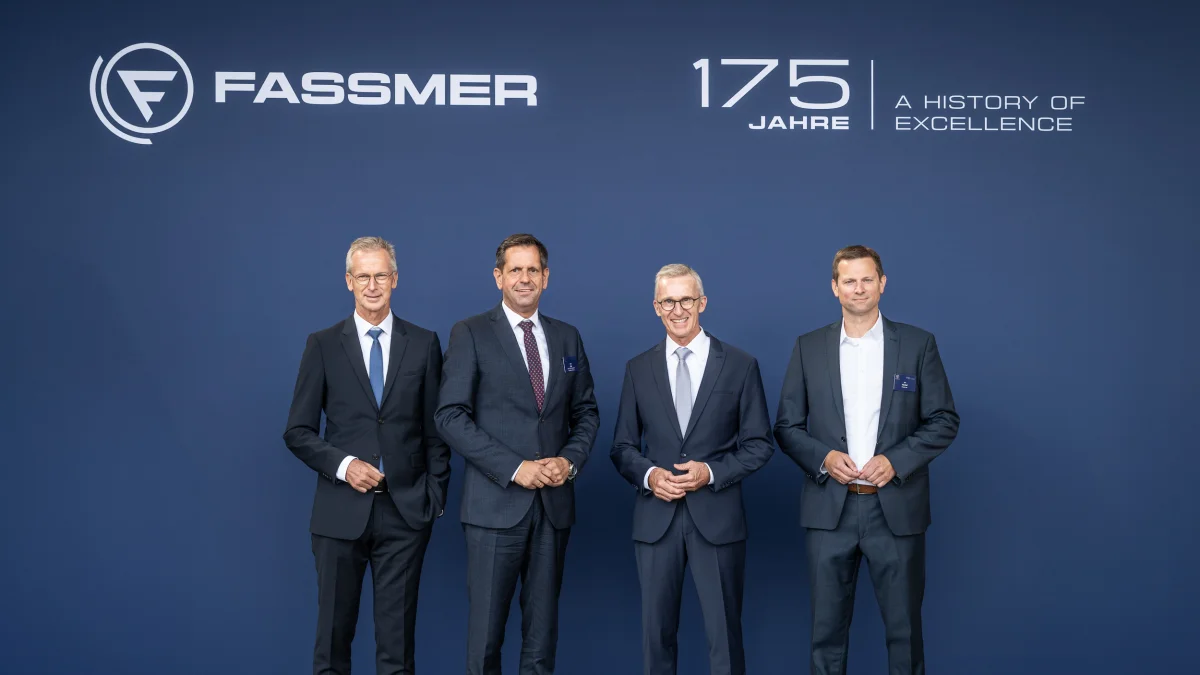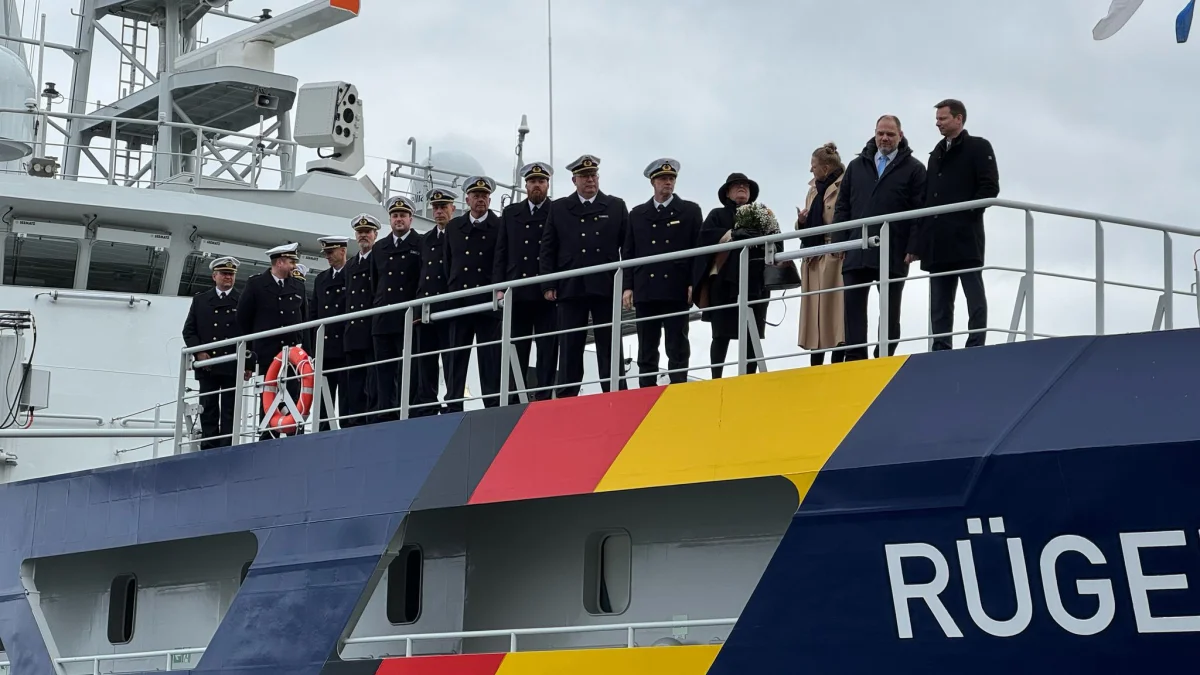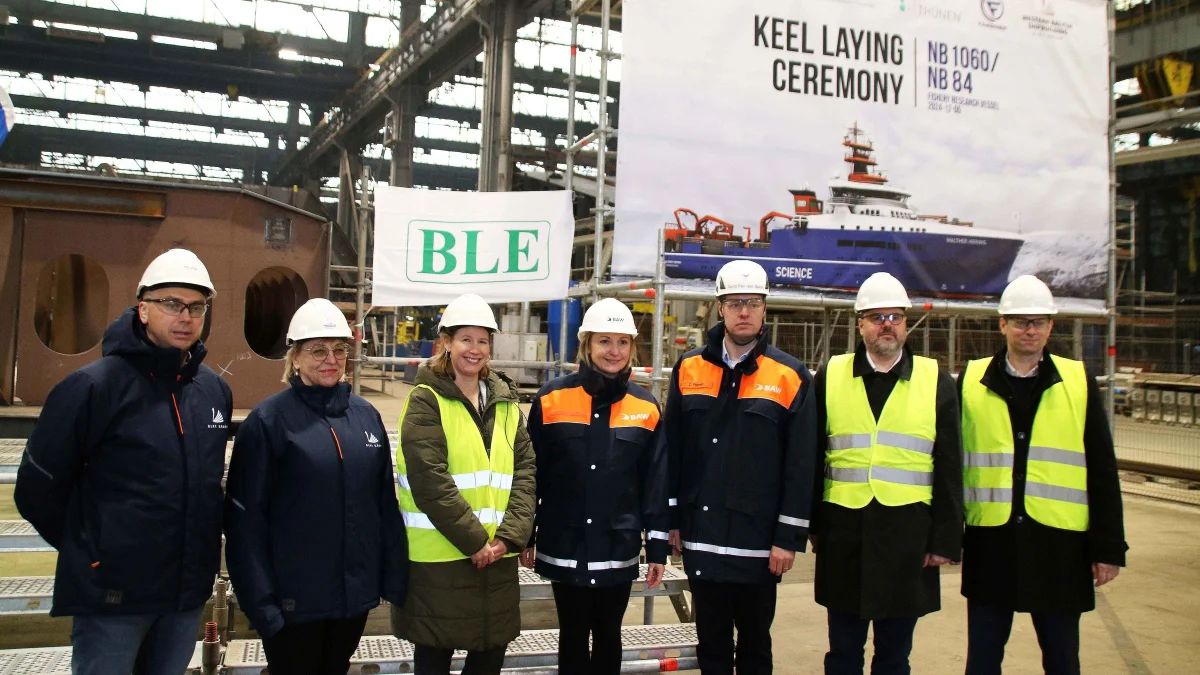Fassmer awarded major order from Singapore
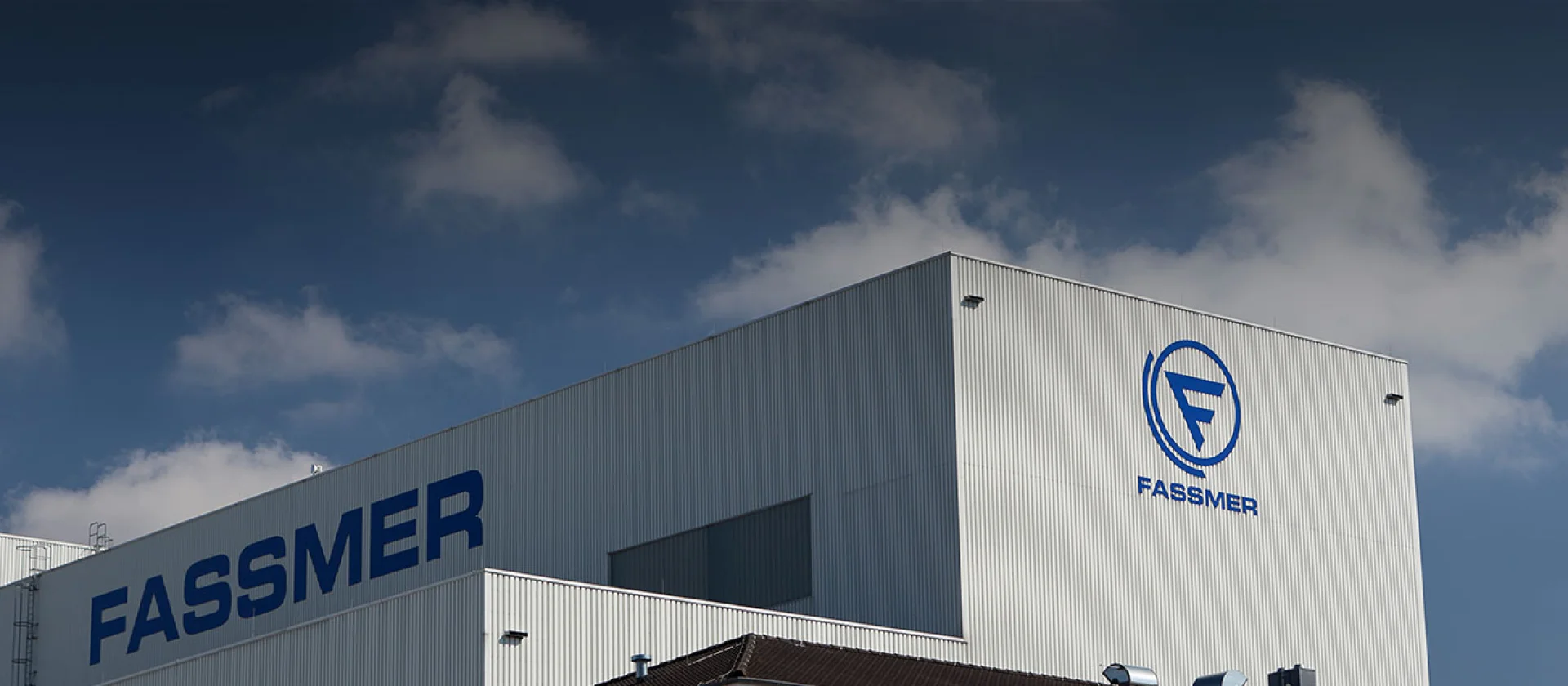
Contract signed for the construction of the new research vessel WALTHER HERWIG
Cutting-edge fisheries research meets climate-neutral innovation
Berne, November 2, 2023 – At Fassmer’s headquarters in Berne, the contract for the construction of the new research vessel WALTHER HERWIG was signed yesterday. Scheduled to enter service in mid-2027, the vessel will be one of the world’s most modern and powerful ships for fisheries and marine research. It will facilitate interdisciplinary research and mark the fleet’s entry into the use of climate-neutral methanol.
On November 1, 2023, Dr. Margareta Büning-Fesel, President of the Federal Office for Agriculture and Food (BLE), and Harald Fassmer, Managing Partner of Fr. Fassmer GmbH & Co. KG, signed the contract for the construction and delivery of the new fisheries research vessel. Designed for worldwide operation, the vessel’s primary research areas will include the North Sea, the Baltic Sea, and the North Atlantic from the subtropics to Greenland.
State-of-the-art fisheries research for healthy marine ecosystems
The WALTHER HERWIG will rank among the most advanced and capable fisheries research vessels worldwide. Measuring around 85 meters in length and 18 meters in width, it will be the largest ship in the BLE fleet, accommodating up to 46 people, including crew and scientists.
The ship’s extensive facilities include ten laboratories, working cranes, systems for pelagic and demersal fishing as well as twin-trawling, a stern crane, and equipment for deep-sea research. A large open working deck and multiple container slots ensure flexible use and reserve capacity for future requirements. This enables the Thünen Institute, as the vessel’s operator, to monitor key fish stocks, conduct marine ecological studies using state-of-the-art methods, and carry out marine chemistry and physics measurements, as well as research into the impacts of fisheries on the marine environment. The vessel thus provides the German government with a vital tool for aligning sustainable use of marine resources with the protection of marine ecosystems.
Climate-neutral operation with methanol
The WALTHER HERWIG will feature a diesel-electric propulsion system. By integrating SCR catalytic converters and particulate filters, the vessel will not only meet but exceed stringent emissions standards. It will comply with the criteria of the “Blue Angel” eco-label for environmentally friendly ship design (RAL-UZ 141) as well as U.S. EPA Tier IV regulations. Importantly, the propulsion system can be converted to operate on methanol, paving the way for climate-neutral operations.
Project partners
The design and planning of the vessel, along with the Europe-wide tendering process, were led by the Ship Technology Division of the Federal Waterways Engineering and Research Institute (BAW). The project team also included the Federal Office for Agriculture and Food (BLE) as client and operator, as well as the Thünen Institute as the vessel’s future user.
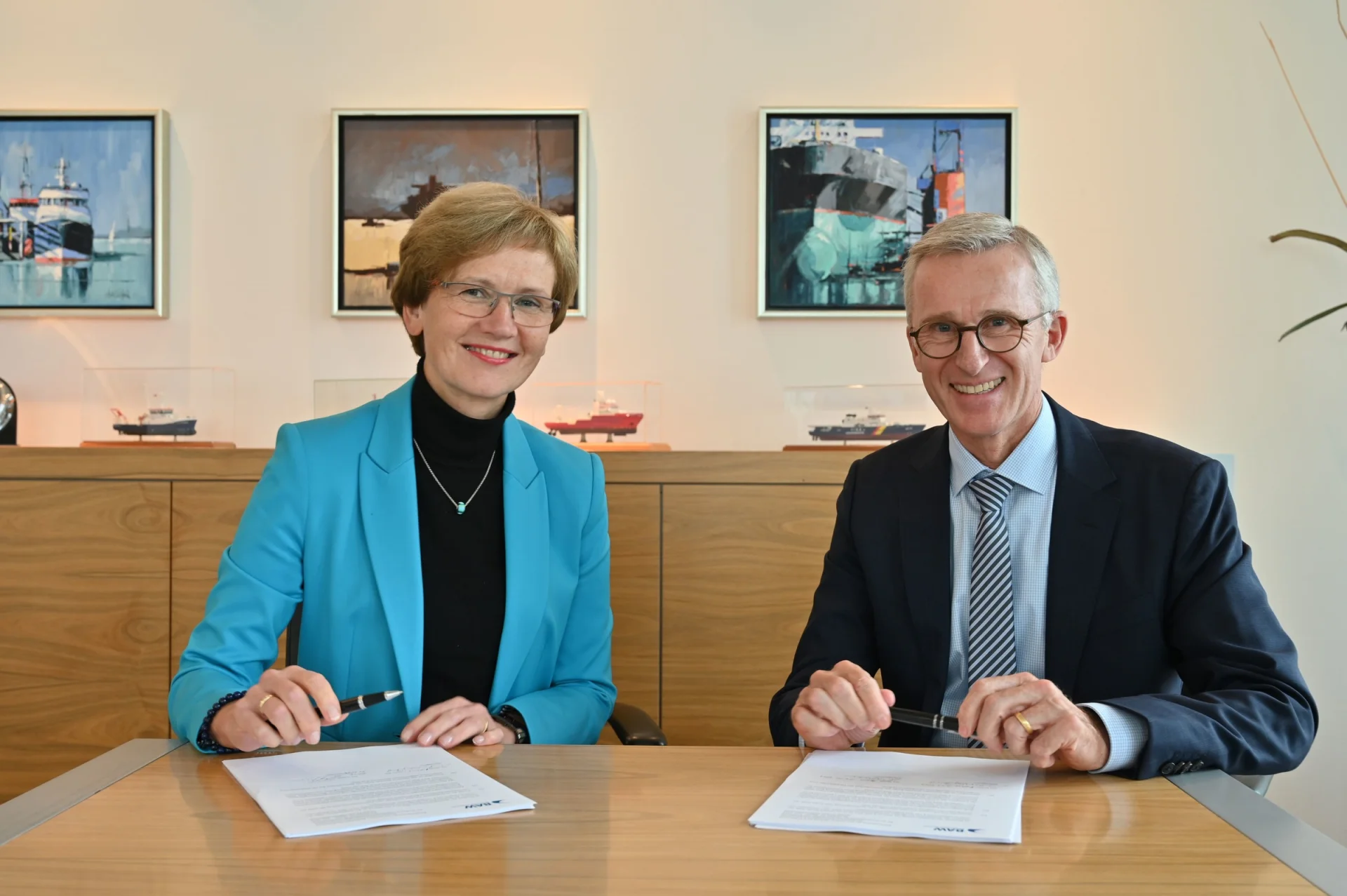
Dr. Margareta Büning-Fesel, President of the Federal Office for Agriculture and Food (BLE), and Mr. Harald Fassmer, Managing Partner of Fr. Fassmer GmbH & Co. KG, at the contract signing ceremony.





